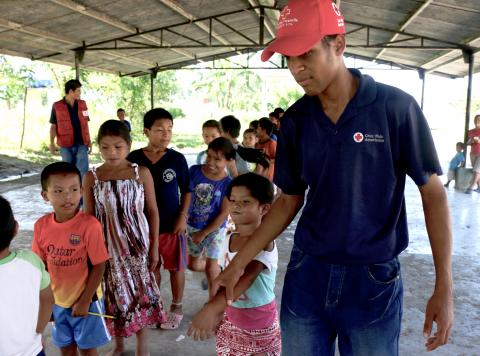Teaching Children About Resilience in Rural Panama


In the rural communities of Guabito and Puente Blanco, located in Panama, children are helping spread the message about resilience. Thanks to the initiative from the Red Cross volunteers working in these communities, workshops are now adapted to include kids and share important messages with them in a fun way.
Since 2013, the Red Cross carries out a number of activities with local communities in Panama, within the framework of the Resilience in the Americas (RITA) project. This includes a variety of workshops to build local response and resilience capacity. At first, many community members did not fully comprehend workshop contents, as many speak Ngobere as their native tongue, rather then Spanish, Panama´s official language. As such, volunteers began by translating materials into Ngobere, helping both adults and children.
Seeing the success of this initiative, they decided to take it a step further and adapt materials to be interesting for the younger generation, creating coloring sheets, games, images, and fun activities. Now, when the Red Cross trains community members on first aid, management of floods, or health issues, volunteers also provide training for children.
This has a number of positive impacts. Firstly, workshop facilitators initially noticed that parents were often distracted, as they needed to take care of their children, who they would bring along to the workshops. Now that they provide simultaneous training activities for the kids, parents have the ability to fully focus on the workshop and really learn.
On the other hand, children love to share what they learn. They come home after the trainings and teach their siblings, family members and others in the community, making an important contribution to knowledge sharing within the community and helping spread the most important messages about resilience.
Last but not least, it is essential that these young people are able to learn about resilience, health and safety early on. They will grow up aware of the importance of these topics and be better positioned to prevent and respond to disasters, as well as improve their quality of life.
Lessons Learned :
Supporting Materials :


